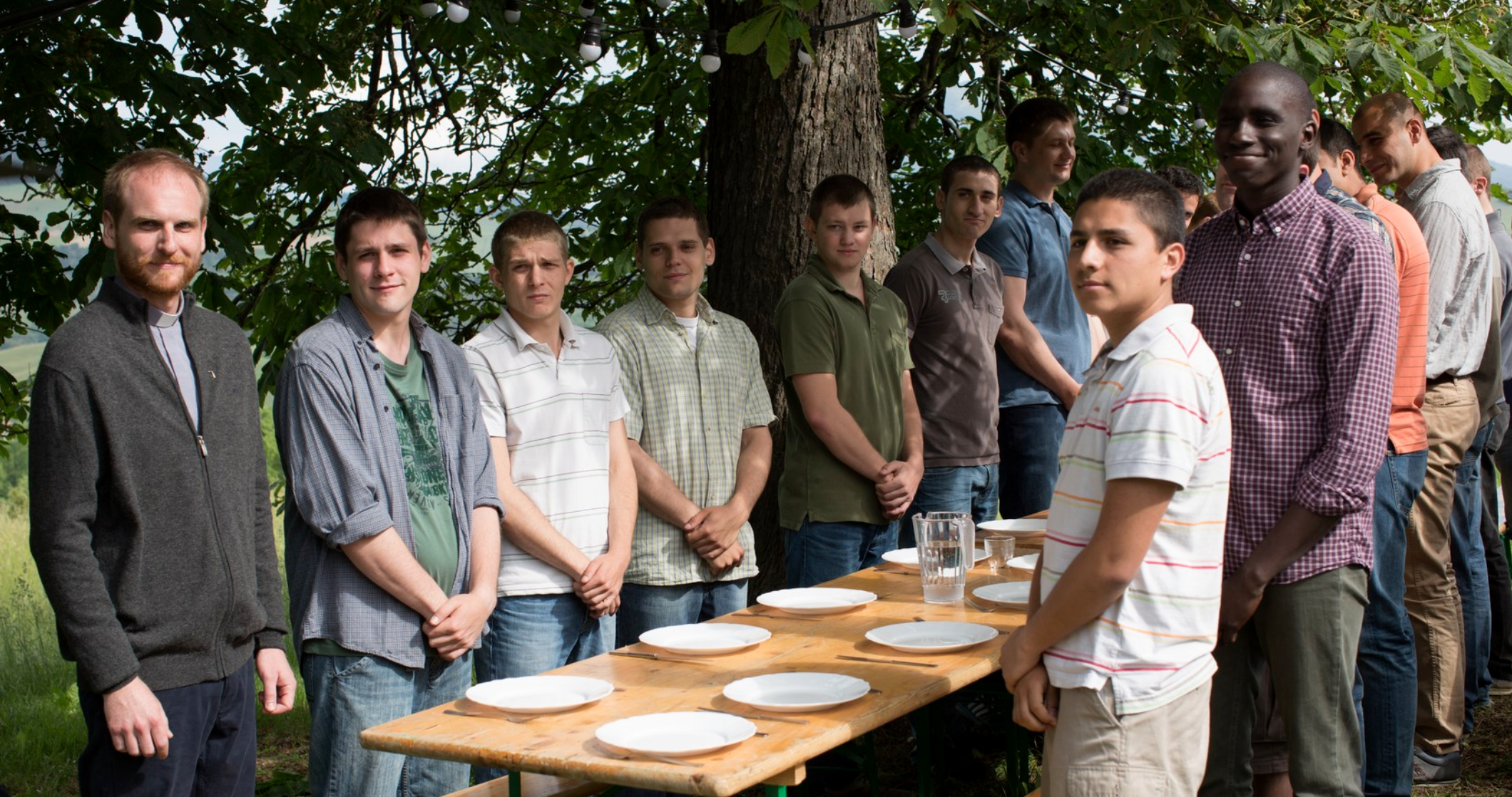“La Prière,” the strange journey of an addict toward himself
He arrived. We do not know where from, nor how. With his round face marked by blows, this teenager looks like a kid and a tough guy all at once. We do not know where he comes from, but we know what he’s become a product of: his addiction to hard drugs.
We don’t know how he got there, but we understand where he hails from: a community of men living in the mountains, aging addicts, now devoted to prayer, work and to the rediscovery of oneself. Not fun? No (although, at times …) but intense just the same. Physical, precise and brimming with energy.
Going along with Thomas, his background, his inner conflicts and those he has with others, his decisions, refusals and choices, “La Prière” builds on a kind of wisdom that is sensitive to the idea of the connection one has with the rest of the world. And although this wisdom is grounded in the present situation, it’s also able to relate to other, very different, ones.
Thanks to a cast of gifted and unknown actors, including Anthony Bajon, who more than earned his best acting prize at the recent Berlinale, and Louise Grinberg, and also to his choice of the screenplay, and directing, French filmmaker Cédric Kahn has directed his best film since “Roberto Suco” (2011).
Also mention-worthy is the incredible work of DP Yves Cape, who previously shot the great anguished films of Bruno Dumont (“L’humanité,” “Hadewijch”, “Flandre,” “Hors Satan”).
Yes, it must be said, a great faith in filmmaking is needed to lens with such precision the movements of toil, the practicing of prayer, just as much as the moments of relaxation replete with singing and guitar-playing that are spent between broken people keen on rebuilding their lives.
The physical and moral hardships that unfold in Thomas’s footsteps, the dangerous loneliness of life in the mountains—like the more than tempting encounter with the neighbors’ daughter—the hesitation between several possible paths and the increasingly complex relationship with the other members of the community, all of these combine into a roadmap that could easily be construed as a parable. But this narrative path never loses touch with the very concrete notion of movement and matter, never imposing an exotic symbolism or, one that would’ve come from “up above.”
The community as described by “La Prière” is Catholic, and the Catholic religion is treated with care and respect. Is Cédric Kahn himself a Christian? We don’t know, but then, it doesn’t matter. Rigorously conforming to the liturgy, when it evokes it, the film broaches, in fact, a greater spirituality which can reference any religion, or even make do without religion altogether.
This film is a vibrant plea for the vital importance of rules and codes of how one constructs a self, one’s own and that of others, in the name of a higher and more demanding idea of freedom than the one to get high, to mistreat others, to exploit them. Without appearing to be this, “La Prière” is (also) an anti-liberal pamphlet.
[This review first appeared in the French edition of Slate (view the original article). It was translated to English by the editor]
It just so happens that two other French films that were recently released overlap, in their own way, on the same trials encountered in the Cédric Kahn film. Xavier Giannoli’s “The Apparition,” (“L’apparition”) where he confronts the effects of faith on everyday life, and “Party over” (“La Fête est finie” in the original French title) also mostly shot in a center that serves drug addicts. Mentioning them, without seeking to minimize their qualities, helps to highlight what makes “La Prière” a successful film: Not needing to believe that, notwithstanding the spiritual challenge and the question of faith, one should resort to an invasive romanticized apparatus, as in the first of these two films, nor to psychological cliffhangers and running commentaries on the meaning of life, as in the second one.
The only resources of “La Prière” are the physical presence of bodies, the perceptible roughness of the environment, the total faith in the possibility that “something is happening,”—whatever anyone may want to call this “something”—between the gestures, the words, the stares and the silences. Resources that, all told, are quite enough in making a film that is both moving and stimulating (no U.S. release date has been set as of this writing).
Jean-Michel Frodon is a film critic for Slate and Le Monde. He is the former editor-in-chief of Les Cahiers du Cinéma. He currently teaches at Sciences Po, in Paris, and University of St Andrews in Scotland.
news via inbox
Nulla turp dis cursus. Integer liberos euismod pretium faucibua




